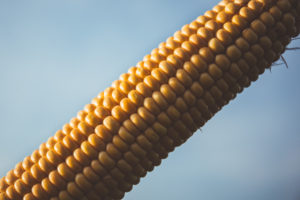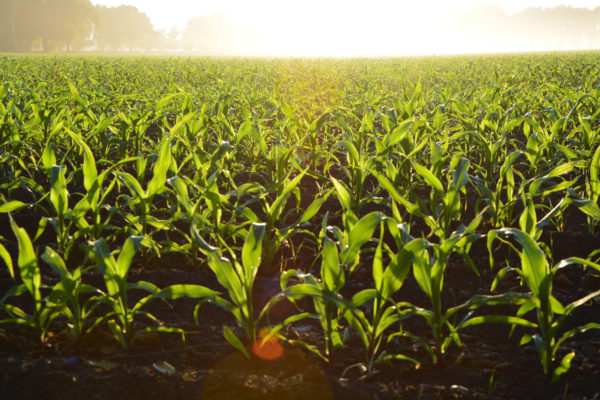Let’s face it: corn hasn’t had the best reputation in recent years. From Food Inc. to the soaring demand for organic, non-GMO products in the U.S., corn has not been portrayed in the best light. After all, the majority of commodity corn is now grown to make ethanol and high fructose corn syrup, which is a large contributor to the rise of diabetes and obesity in America.
…But that doesn’t mean that all corn is bad! In fact, organic, non-GMO, whole grain corn contains some pretty impressive nutrients and has been linked to various health benefits. Unfortunately, finding organic, non-GMO, whole grain corn isn’t as easy as it seems. Why is that so? Well first it’s important to understand what GMOs are and their prevalence in society today.
What Are GMOs?
GMOs, or genetically modified organisms, are any plant, animal, or other organism whose genetic makeup has been modified, creating unstable genes that would not otherwise occur in nature.
Currently, most developed nations do not consider GMOs to be safe and therefore, have extensive restrictions, if not outright bans, on them. However, GMOs are currently approved for production and sale in the U.S.
Why Are GMOs Unsafe for Our Society?
Not only are the long-term effects of GMOs unknown, but they are also having seriously negative consequences on America’s family farmers and the environment in general.

How GMOs Affect Farmers
Technically speaking, GMOs are considered “novel” life forms, which means that large corporations have the power to obtain patents on them and restrict their use. However, now these large corporations are actually suing farmers whose fields are contaminated with GMOs as a result of wind drift from neighboring fields.
Not only does this impact farmer sovereignty, but it also makes it harder and harder for farmers to actually produce non-GMO crops that more and more consumers are demanding.
How GMOs Affect Our Environment
The majority of GMOs grown worldwide are designed for herbicide tolerance. This may seem like a good idea at first – no more pests destroying crops means more food at a lower cost for society right? Wrong!
Since genetically modified crops were first introduced, the use of toxic herbicides has actually increased dramatically. This is a result of the emergence of “super weeds” and “super bugs”, which are herbicide-resistant organisms that can only be killed with extremely toxic poisons.
…And so the cycle continues!
So, what does this have to do with corn?

As you can see, finding non-GMO corn is becoming increasingly more challenging, which means that there is less and less of that good whole grain corn we know and love!
This is the corn that contains all of those impressive nutrients we were talking about earlier – such as vitamin C, antioxidants, and potassium.
Not to mention the fact that this is the good corn that is helping family farms stay in business and keeping the good ‘ol fashioned American Dream alive!
Non-GMO and Organic Corn
We’ve already talked about how rare it is to find non-GMO corn, but we haven’t even touched on how hard it is to come across corn that is non-GMO and organic. This means that not only is the corn grown without the use of pesticides, synthetic fertilizers, and radiation, but it is also not genetically modified to ease production.
Nowadays, it is harder and harder for farmers to grow corn that is organic and non-GMO as GMO seeds from other neighboring properties are contaminating these organic farmers’ land through wind drifts and water runoff.
Basically, the point we are trying to make is that finding corn that is organic and non-GMO is tricky these days.
Green Hope Corn Vodka
At Green Hope, we make our vodkas using non-GMO, organic corn from a family farm who takes pride in growing it. Our Hope Corn Vodka is clean, crisp, and totally pure – perfect for mixing up a martini, vodka soda, or cream-based cocktail.
Sit back, pour some liquid Hope, and rest assured knowing that you are drinking vodka made from the finest grains grown in America.
Cheers!


